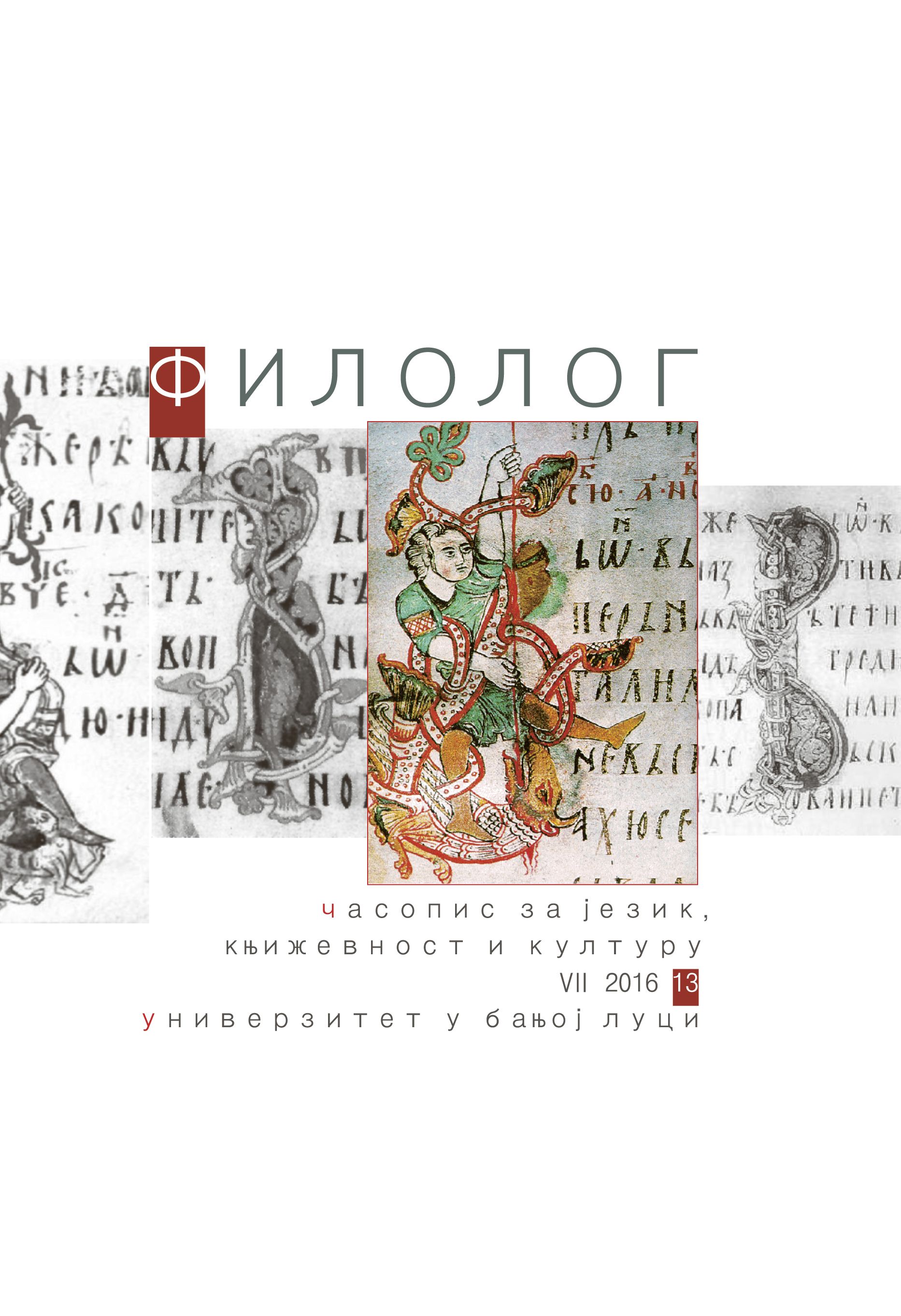Описна нарација и њени трансмедијални аспекти у роману „Крила“ Станислава Кракова
Descriptive Narration and Its Transmedial Aspects in Stanislav Krakov’s Novel “Wings”
Author(s): Snežana М. Milosavljević MilićSubject(s): Language and Literature Studies, Novel, Serbian Literature, Philology, Theory of Literature
Published by: Филолошки факултет Универзитета у Бањој Луци
Keywords: Descriptised Narration; Dramatised Description; Hybrid Cognitive Frame; Transmediality; Film Montage;
Summary/Abstract: This paper deals with the nature of ‘implicit intermediality’ in Stanislav Krakov’s novel Krila (Wings), which can be recognised within the ‘filmisation of novel’ procedure (Wolf 2008: 255). With regard to that, special attention is paid to descriptive narration as a scalar phenomenon position between a pure description and a pure narration. Descriptized narration, defined as such by Harold Mosher, is interpreted as a hybrid form in which the dynamic principle and teleological direction of narration lack progression because the temporal dimension is contaminated with the spatial one, and because of simultaneity of event sequences as well. The latter causes the disruption of static narration due to the moving image effect. Further effects of descriptized narration are: generalisation, iterative and repetitive events, impersonality of perspective, group, usually unnamed characters and use of present and progressive forms (Mosher 1991: 432–435). Also, descriptized narration plays an important role in the symbolic and poetic meaning of Krakov’s novel – repetitiveness of events hyperbolically underlies their feverish dramatic nature yet, paradoxically, their futility, fragmentary form and desperateness of the scene make an impression of distorted image, disharmony, cracks, broken ties that give space to chaos and nonsense.
Journal: Филолог – часопис за језик, књижевност и културу
- Issue Year: 2016
- Issue No: 13
- Page Range: 239-254
- Page Count: 16
- Language: Serbian

